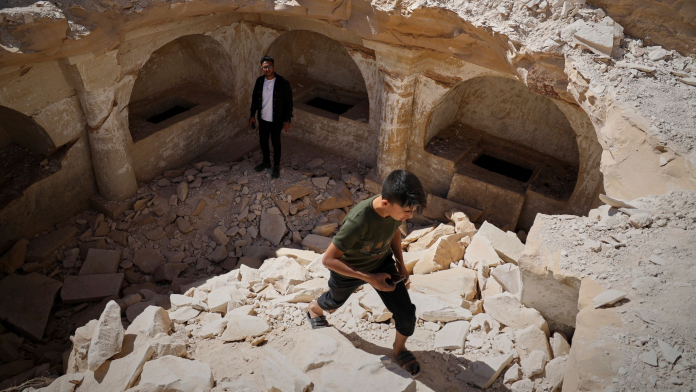A contractor clearing debris from a demolished house in northern Syria’s Maarat al-Numan unearthed a remarkable archaeological find: a 1,500-year-old underground tomb complex dating to the Byzantine era, according to AP News.
The discovery occurred in Idlib province—a strategic corridor between Aleppo and Damascus—which endured heavy fighting during Syria’s civil war before Bashar al-Assad’s forces reclaimed it in 2020.
Amid reconstruction in the war-ravaged town, stone openings revealed two burial chambers, each containing six tombs. A cross etched into a limestone pillar confirmed the site’s Byzantine origin. “Based on the presence of the cross and the pottery and glass pieces found, this tomb dates back to the Byzantine era,” stated Hassan al-Ismail, Idlib’s antiquities director.
[Idlib] has a third of the monuments of Syria, containing 800 archaeological sites.
The find adds to northwest Syria’s “Dead Cities”, abandoned Byzantine settlements featuring basilicas, colonnaded streets, and tombs. Yet decades of conflict devastated such heritage through bombing, looting, and illicit excavations.
Local resident Ghiath Sheikh Diab, who witnessed the tomb’s uncovering, recalled how property owners historically concealed ruins, “fearful that their property would be seized to preserve the ruins.” He urged fair compensation for owners and aid for displaced returnees facing destroyed homes.
The Byzantine Empire—a Christian continuation of Rome centered in Constantinople (modern Istanbul)—flourished here between the 4th–15th centuries. Today, its weathered stones stand testament to resilience, even as Syria’s recovery remains fraught.
